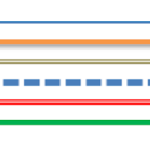

Artificial intelligence is here and shows no signs of slowing down. According to PwC, business leaders said they believe AI is going to be fundamental in the future. Most people referred to AI as a “business advantage.” The same survey reports that 63% of people agree AI will help solve complex problems that plague modern societies, and 59% agree that AI will help people live more fulfilling lives. But, where will AI take the real estate market in ten years?
AI is infiltrating every industry, including the real estate sector. What was once a lagging industry, faces massive change now – and in the future. From enhancing the home search process to predicting property market values, AI will impact consumers and agents alike.
Currently, AI capabilities are somewhat limited. However, the way the technology is advancing, 10 to 15 years from now, AI will significantly transform the way people buy and sell property. Here are four predictions for how AI will revolutionize the future of the real estate industry.
Contents
1. Make the property search better for clients.
Searching for a new home can be overwhelming. Today’s real estate portals recommend properties based on characteristics, such as the number of rooms, square footage, price, etc. They also display far more information than potential homebuyers need.
In the future, AI will enable home search portals to recommend properties that align with consumers’ preferences, personality traits, and values. Much like a dating website, portals will deliver fewer, higher quality properties based on what’s important to the client. Instead of displaying more information, home search platforms will give consumers the right information.
Additionally, existing chatbots can answer simple queries to help potential clients find their next home. If they’re unable to provide an answer, bots will notify human agents to take over and offer a better response. As machine learning advances, chatbots will become smarter. In the future, they’ll be able to answer complex search queries proficiently, including those through voice technology.
AI will also change the way consumers receive listings. Real estate agents will no longer have to send property listings to clients manually. Instead, they’ll be able to use a tool to automatically send personalized messages in bulk based on a client’s life event like a marriage, baby, or retirement. AI will allow agents to connect with potential homebuyers in a more personal, meaningful way and help them in their home search.
2. Enable property tours without an agent.
In the future, agents will no longer need to accompany clients to show a home, and clients can tour a property at their leisure. Agent-less showings will become more popular as AI-powered robots will be able to show clients around properties anytime and answer questions they may have.
In the future, consumers may prefer to do business with bots instead of real people. According to Salesforce, 69% of consumers prefer chatbots for quick communication with brands.
Zenplace, for example, is a company that offers consumers an AI-driven home tour experience. The startup developed a bot that comes with a tablet attached to a pole on wheels. It streams a live feed of a real estate agent who conducts the tour and steers the robot. This simulated robot increases the number of showings that realtors can hold within a day.
AI will enable buyers to view homes on their own, give feedback, and allow the agent to help clients decide why it may be a suitable property. Robots won’t take over, as a human touch will still be necessary. Instead, this technology will be helpful to agents that cover a lot of territory and have a busy showing schedule.
3. Predict property market values.
AI technology can help real estate agents better predict the future value of a property in a target market by combining CRM and marketplace data. For example, technology may link information from various sources, including area crime, schools, transportation, and marketplace activity.
Skyline AI, for instance, is working on a platform that can precisely predict future rent, identify future market trends, and capture arbitrage between asking price and market price. The AI software compares as many as 10,000 property attributes and researches as far back as 50 years on every multi-family property in the US.
Buying a new home is an investment for most consumers. Therefore, having a reliable forecast of its future value can make buyers more comfortable and confident about making such a significant purchase.
4. Improve the buying process.
Purchasing a home can be a tedious and stressful process. However, machine learning will refine the process of buying a home in the years to come.
JetClosing, for instance, is a company that applies machine learning to create a user-friendly, faster, and transparent real estate closing experience for the buyer, seller, and the agent. The startup digitizes the entire closing process and allows real estate agents to provide real-time notifications and messaging to homebuyers about the progress of a close.
Machine learning can help agents deliver a frictionless client experience by providing faster closing times, robust compliance checks, and auto-fillable data that cuts down on manual data entry and errors. It will also be able to offer smart reports that help agents accurately assess their performance.
Bringing AI to real estate.
AI is barely scratching the surface of the real estate industry. However, it will significantly impact the way people buy and sell property 10-15 years down the road.
Agents who embrace AI-driven technology will have a competitive advantage compared to those who do not. As for consumers, AI will ease the challenges of finding, viewing, and buying a home. AI will help agents better serve their clients, and this technology will be a key competitive edge over other agents. Those that embrace the technology will certainly see results.
[“source=readwrite”]


